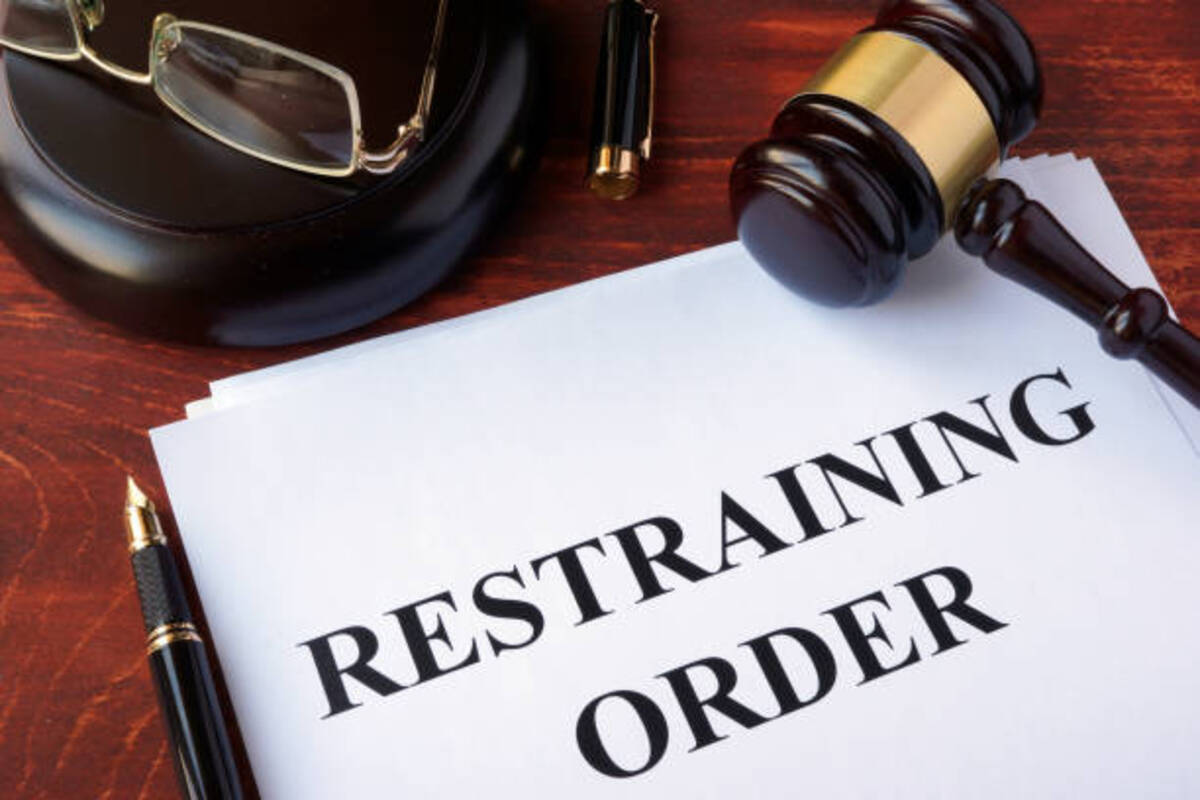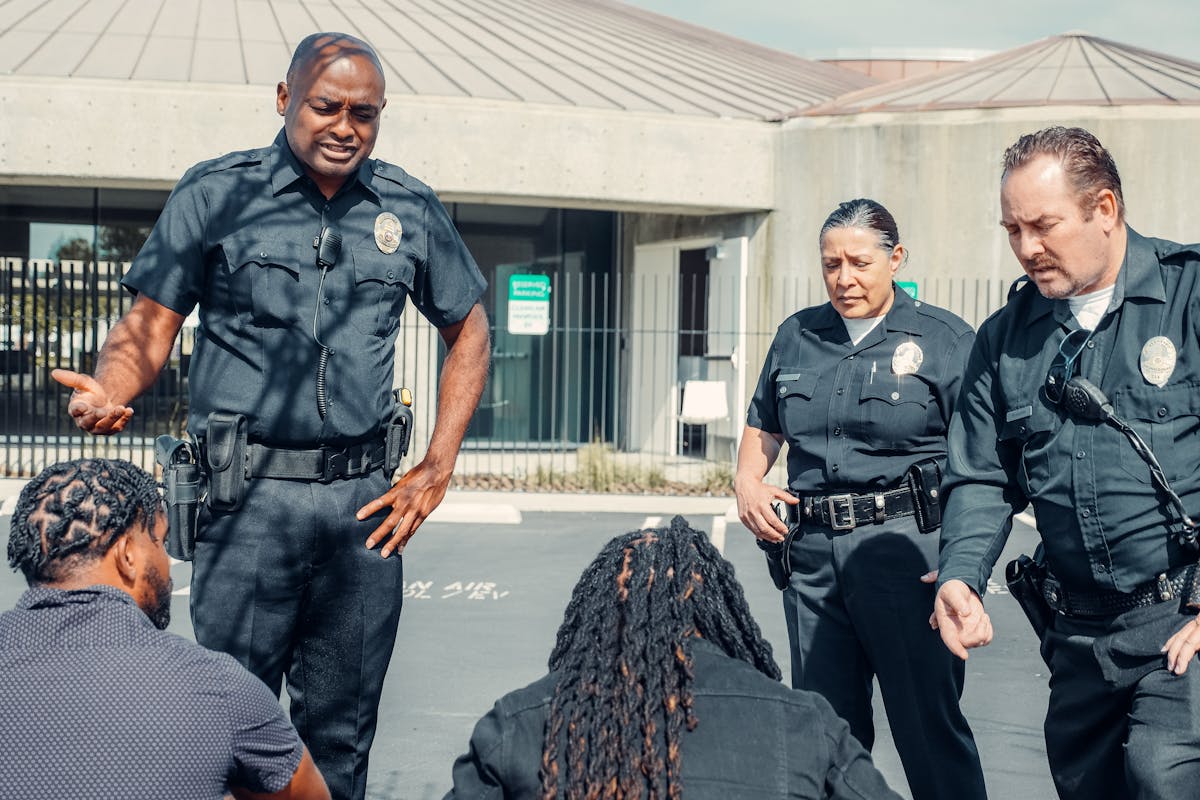What You Need to Know About Violating a Texas Protective Order

Understanding the gravity of violating a Texas protective order is imperative, given the severe legal repercussions that can ensue. These consequences span from misdemeanor charges to third-degree felonies, accompanied by substantial fines and possible incarceration. Moreover, such violations can greatly impact child custody and visitation rights. The role of law enforcement is pivotal too, as they enforce these orders, respond to violations, and gather critical evidence. The nuances of this topic warrant a thorough exploration to grasp the potential implications fully.
Understanding Texas Protective Orders
In the legal landscape of Texas, protective orders play an essential role in safeguarding individuals from potential harm. They serve as legal injunctions, restraining a person from engaging in harmful behaviors towards another party. Understanding the protective order basics is vital in recognizing its significance and the protection it provides.
There are several types of orders in Texas, each designed to cater to different situations. The first kind is a domestic violence protective order, intended to protect victims of domestic abuse. This type of order often includes restrictions on contacting, threatening, or causing harm to the person who applied for the order. It may also include stipulations about child custody or property possession.
The second type is a stalking protective order, issued when an individual exhibits stalking behaviors. This order prohibits the alleged stalker from further harassing behaviors.
The third type, a sexual assault protective order, is designed to protect victims of sexual assault or abuse. It functions similarly to the domestic violence order, but is specifically tailored to situations involving sexual violence.
In all these instances, the goal is to guarantee safety, uphold justice, and prevent further harm to the victims.
Legal Consequences of Violation
What happens when a protective order in Texas is violated? The legal ramifications can be severe and wide-ranging, varying with the severity of the violation.
The violation of a protective order is considered a criminal offense in Texas. Depending upon the circumstances, this could be classified as a Class A misdemeanor or a third-degree felony. The former can lead to a fine of up to $4,000 and/or a jail term of up to one year, while the latter can result in a prison sentence of two to ten years, with a possible fine of up to $10,000.
In addition to criminal charges, the violator may also face civil consequences. These can include contempt of court, which can lead to additional fines or jail time, and potential changes to child custody or visitation rights.
It is also worth noting that a violation can lead to an extension or a permanent status of the protective order. Each violation is recorded, potentially leading to increased penalties for any future violations.
The Role of Law Enforcement
In the context of a Texas protective order, law enforcement plays an essential role in ensuring the safety of the protected party. The police intervention process, from initial response to possible arrest, serves as a deterrent and a means of enforcement for these orders. Non-compliance can lead to serious legal consequences, underscoring the important role of law enforcement in this matter.
Police Intervention Process
Upon violation of a Texas protective order, law enforcement officers play a pivotal role in restoring safety and ensuring justice. Law enforcement is often the first line of emergency response when a protective order is breached, and they are tasked with diffusing the situation, providing immediate protection to the potential victim, and enforcing the law.
The police intervention process commences with the receipt of a distress call or a report of violation. Officers are dispatched immediately to the scene of alleged violation. Once there, they assess the situation, ensuring the safety of all individuals involved. They are trained to handle such situations with utmost care to prevent any further harm or confrontation.
Officers are also responsible for evidence collection. This is a critical step in building a case against the violator. They meticulously document the details of the incident, collect physical evidence if available, and take statements from the victim and any potential witnesses. The collected evidence and testimonies are fundamental in establishing the violation of the protective order.
Consequences of Non-compliance
The enforcement of protective orders in Texas does not end with police intervention in the event of violation. In fact, the consequences of non-compliance extend far beyond immediate arrest and can have significant, long-lasting impacts on an individual’s life.
Violation penalties for non-compliance with a protective order often include substantial fines, incarceration, and mandatory participation in intervention programs. Additionally, this violation can have severe repercussions on employment prospects, housing applications, and even parental rights in some cases.
Law enforcement officers play an essential role in protective order enforcement, not only through immediate response to reported violations but also by monitoring the compliance of the violator in the long term. A clear record of the violator’s actions is kept, and any sign of non-compliance is followed up with strict action.
Moreover, the protective order violation is designated as a criminal offense in Texas, and it is treated with the seriousness it deserves. This sends a strong message to potential violators about the gravity of their actions and the subsequent consequences they might face.

Common Violation Scenarios
Various scenarios often lead to violations of Texas protective orders. A common scenario involves individuals experiencing emotional distress. This distress, often the result of relationship turbulence, may cause individuals to act impulsively, potentially leading to protective order violations.
For example, an individual may attempt to contact the protected party to reconcile or express their feelings, disregarding the protective order in the process. In these cases, the violator might not fully comprehend the implications of their actions due to their emotional state.
Another typical situation concerns misunderstandings about the protective order duration. Some individuals may erroneously believe the order has expired or been lifted, leading to unintentional violations. It’s vital to understand that the protective order remains in effect until its officially determined end date, and any actions breaching its conditions are considered violations, regardless of the violator’s intent.
Legal Defenses Against Violation Charges
Facing charges for violating a Texas protective order can seem insurmountable. However, several defense strategies can be employed to challenge these accusations. The key is to understand the nuances of the law and to seek professional court representation.
Firstly, if it can be proven that the defendant was unaware of the protective order, a defense can be built on this ground. Texas law stipulates that for a person to be convicted, they must have known about the order. In addition, if the violation was unintentional and unintentional violations can be defended if the defendant can provide substantial evidence.
Another defense strategy involves questioning the validity of the protective order itself. If the order was improperly served or if there were errors in its issuance, it could be argued that the order is invalid.
Moreover, a defendant might argue that they were in a location protected by the order due to circumstances beyond their control. If it’s possible to show that their presence was unintentional or unavoidable, this could form a strong defense.
Impact on Custody and Visitation Rights
While defense strategies can indeed play a significant role in protecting an individual’s rights, it is also essential to understand how violating a Texas protective order can impact other aspects of one’s life, such as custody and visitation rights. Violations can severely affect the outcomes of custody disputes, often leading to restrictions or loss of privileges.
Particularly in custody disputes, courts prioritize the safety and well-being of the child. A violation of a protective order can demonstrate to the court that the offender may pose a risk to the child’s safety. As a result, the court may rule in favor of the other parent, leading to limited or supervised visitation rights for the offender.
Visitation restrictions are another potential consequence of protective order violations. These restrictions can range from supervised visits to an outright denial of visitation rights. In extreme cases, a violation can even lead to the termination of parental rights. However, the exact consequences can vary based on several factors, including the nature of the violation, the offender’s relationship with the child, and previous violations, if any. Thus, understanding the potential implications of violating a protective order is vital for individuals involved in custody or visitation disputes.
Seeking Legal Help After Violation
Without a doubt, the aftermath of violating a Texas protective order can be a complicated and stressful time. This complexity is often due to the legal implications that accompany violations. As a result, seeking legal help promptly becomes a necessity. Legal professionals can provide guidance and representation, ensuring your rights are protected throughout the legal process.
Lawyers have the skills and knowledge to navigate the intricacies of Texas laws and court procedures. They can also help prepare a defense strategy, negotiate a plea deal, or represent you at trial if necessary. Simultaneously, they can provide advice on accessing emergency resources, such as temporary housing or financial aid, if you’ve been displaced due to the violation.
Moreover, the violation of a protective order can have emotional tolls on all parties involved. Mental health support is essential during this time. Legal professionals can often refer you to appropriate mental health resources, ensuring that you’re not only legally defended but also emotionally supported. Understanding your options and having the right guidance can greatly alleviate the stress and confusion that often accompany such situations. Thus, it is important to seek adequate legal help after violating a Texas protective order.
Frequently Asked Questions
Can a Protective Order Violation Affect My Employment Opportunities in Texas?
Yes, a protective order violation in Texas can impact employment opportunities due to legal implications, such as a criminal record, which employers often consider during the hiring process, potentially affecting your employment prospects negatively.
How Long Does a Texas Protective Order Typically Last?
A Texas protective order’s duration typically varies based on case specifics, often lasting up to two years. However, duration factors such as severity of offense can warrant extension, subject to a court-ordered renewal process.
What Are Some Examples of Non-Violent Violations of a Protective Order in Texas?
Non-violent violations of a Texas protective order can include actions such as indirect contact via social media, phone or email, and non-violent harassment, like stalking or unwanted attention without any physical harm.
Can a Protective Order Be Modified or Dissolved Before It Expires?
Yes, a Texas protective order can potentially be modified or dissolved prior to expiration. This requires a formal legal process and substantial legal grounds, typically overseen by a judge in a court of law.
Does Violating a Protective Order Impact My Right to Own or Possess Firearms in Texas?
Yes, violating a Texas protective order can impact firearm rights. Legal consequences include firearm restrictions, potentially leading to the loss of the right to own or possess firearms under state and federal laws.
